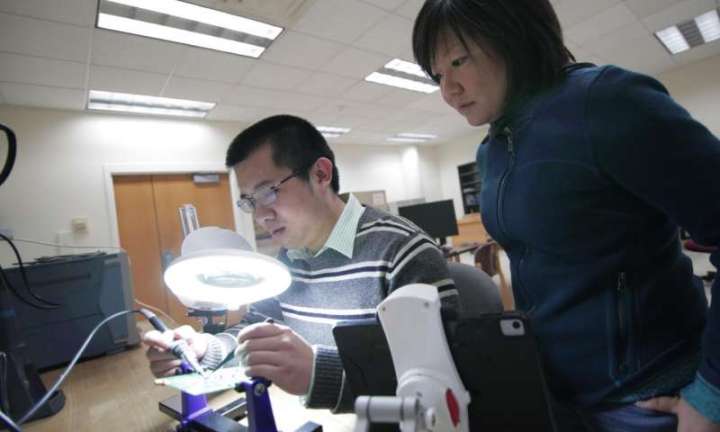
It is a good thing, then, that scientists and researchers continue to look into new ways to keep Moore’s law alive. One group that is taking a particularly unusual approach is a group of researchers looking at liquid silicon at the University of Wisconsin-Madison, Phys.org reports.
The term liquid silicon is being applied to new chip designs that merge hardware and software in single units capable of performing complex calculations and storing large amounts of data. These liquid silicon chips then communicate with the rest of the system in an efficient fashion.
As Jing Li, assistant professor of electrical and computer engineering, puts it, “Liquid means software and silicon means hardware. It is a collaborative software/hardware technique. You can have a supercomputer in a box if you want. We want to target a lot of very interesting and data-intensive applications, including facial or voice recognition, natural language processing, and graph analytics.”
The idea behind liquid silicon is to eliminate the bottleneck that typically occurs when data is transferred between the CPU and memory. Liquid silicon aims to represent unified hardware that integrates memory, communication, and computation in a single device. Using a layered methodology dubbed “monolithic 3D integration,” the designs avoid many of the limitations of chips that are soldered to printed circuit boards as separate devices.
Furthermore, the team is essentially embedding programming languages into the chips’ machine code to further speed up processing. If Li’s team succeeds, then future programmers will no longer need to change how they code but rather will simply port their applications directly to the hardware.
Li is supported in her research by a Defense Advanced Research Projects Agency (DARPA) Young Faculty Award. She along with 25 other awardees can use up to $500,000 in funds over two years to engage in this kind of basic research. There is no word yet on whether or when liquid silicon will make it to market in future products.
Editors' Recommendations
- Intel’s 13th-gen CPU likely to bring big performance boost
- Apple’s Mac chips could soon use a 3nm process for even better performance
- AMD is leaving Intel in the dust on die size, with no 7nm Intel chips until 2021



